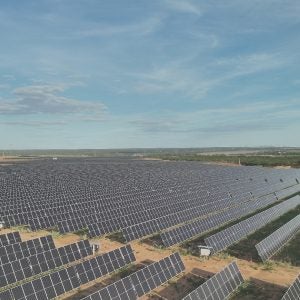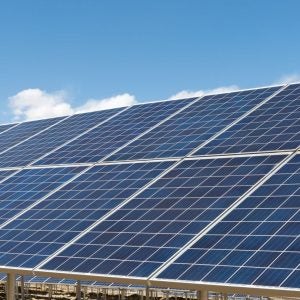
Companies committed to decarbonising their energy use should explore power purchase agreements (PPAs) for solar, a new report advises.
The second edition of the ESG Executive Briefing from GlobalData, Power Technology‘s parent company, explains that solar energy is less capital-intensive than wind projects and that delays in the latter are slowing overall grid decarbonisation.
PPAs fund renewable projects and allow companies to secure clean energy when the projects come online. However, they do have potential issues such as the possibility of projects not being realised, delays in connecting new plants to power grids and tariffs on equipment made in China.
Download sample pages of selected reports
Explore a selection of report samples we have handpicked for you. Get a preview of the insights inside. Download your free copy today.
Solar and wind are the most common PPAs, but construction delays, rising costs and the worsening US policy outlook have hit offshore wind investments from the likes of Ørsted and bp. The onset of the Covid-19 pandemic in 2020 resulted in wind project delays, with costs then soaring as a result of the high inflation that followed in 2022 and 2023.
In 2025, as the report outlines: “The Trump administration’s hiatus on offshore wind project approvals and the end of key tax incentives for renewable development have rounded off a painful five-year period for wind energy.” As such, the relative stability of the solar market is seen as favourable, with bp among the major players pivoting its renewable energy strategy towards solar.
Carbon offsets
Another common way for companies to pursue their sustainability goals is by purchasing carbon offsets – tradable certificates that represent one tonne of carbon dioxide either avoided or removed from the atmosphere. Estimates of the size of the carbon offsets market in 2024 range from $1bn to $2bn, with forecasts projecting growth to as much as $250bn by 2050.
However, demand has stalled since 2021 following a series of scandals, with many projects found to have been overstating their impact.
GlobalData’s Carbon Offsets report explains: “Underperforming projects and overly generous crediting have harmed the reputation of both the offset market and companies that have purchased offsets. They have also led to skepticism from national regulators, who have clamped down on terms such as ‘carbon neutral’ in marketing campaigns.”
As a result, offset quality is becoming more important to buyers, with the methodologies used to calculate the number of offsets a project can sell having been made stricter and carbon ratings agencies emerging as arbiters of offset quality.
The report adds: “The long-term potential of the offsets market remains strong, as every company and country with a net-zero target will eventually need offsets. Six key factors will determine whether the market reaches its potential: corporate commitment to net-zero targets, despite anti-environmental, social and governance rhetoric; the scalability of carbon removal technologies; the success of carbon ratings agencies in raising market standards; advances in monitoring, reporting and verification systems; the integration of offsets into emissions trading systems; and international agreement on country-to-country offset trading.”
Unlock up to 35% savings on GlobalData reports
Use the code at checkout in the report store
-
20% OFF
Buy 2 reports
Use code:
Bundle20
-
25% OFF
Buy 3 reports
Use code:
Bundle25
-
30% OFF
Buy 4 reports
Use code:
Bundle30
-
35% OFF
Buy 5+ reports
Use code:
Bundle35
Valid on all reports priced $995 and above. Cannot be combined with other offers.
Still deciding what will work best for your business?
Ask our experts for help.
Enquire before buying




